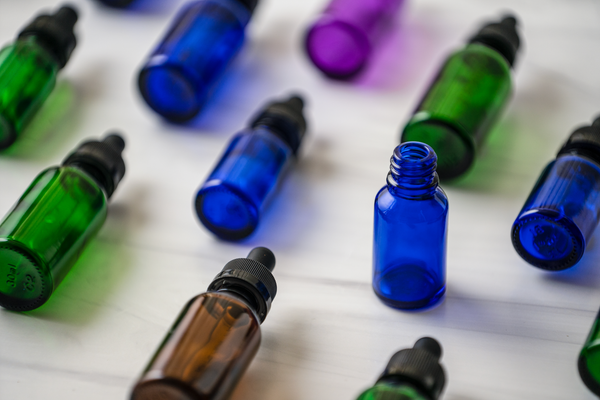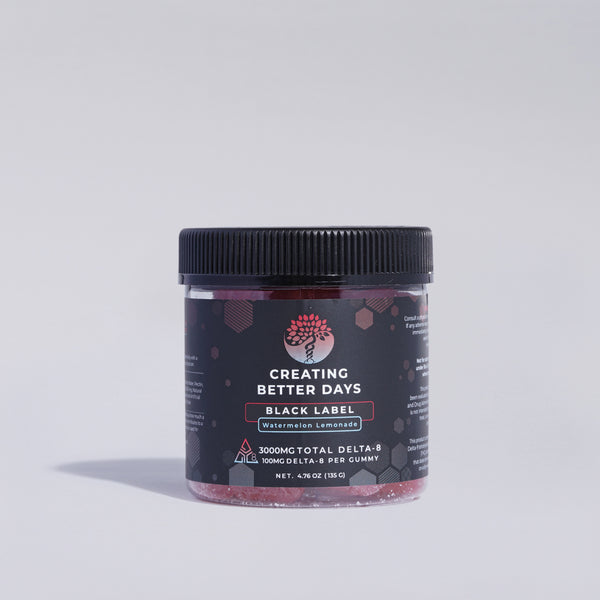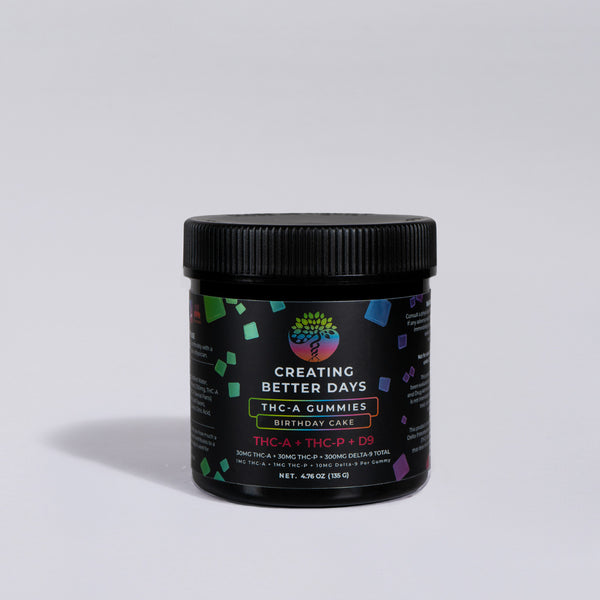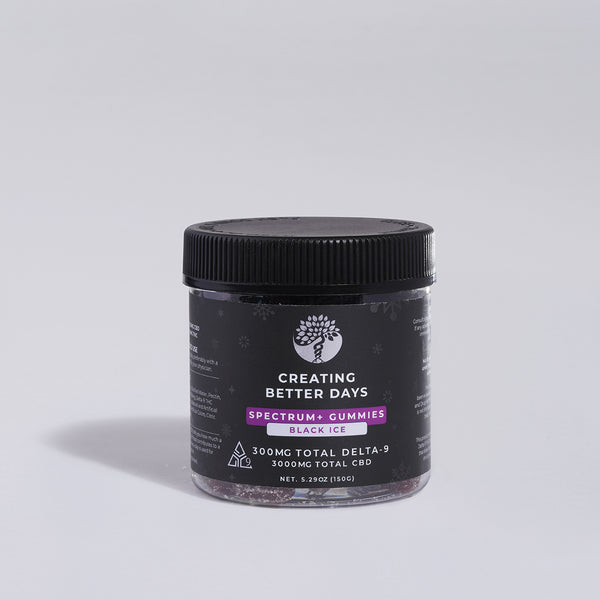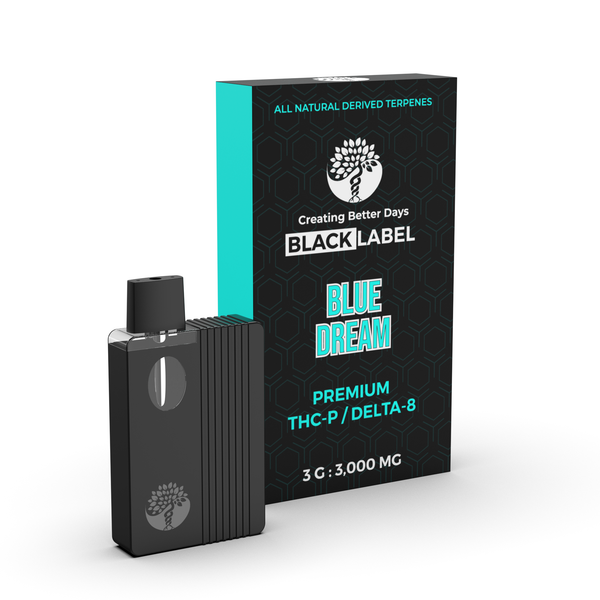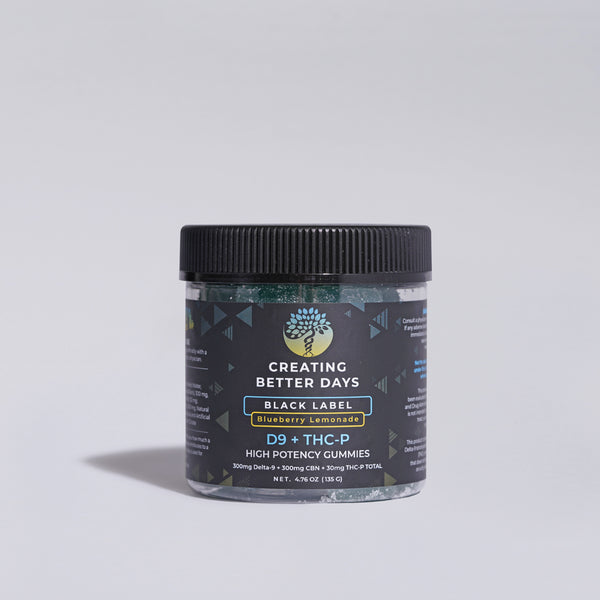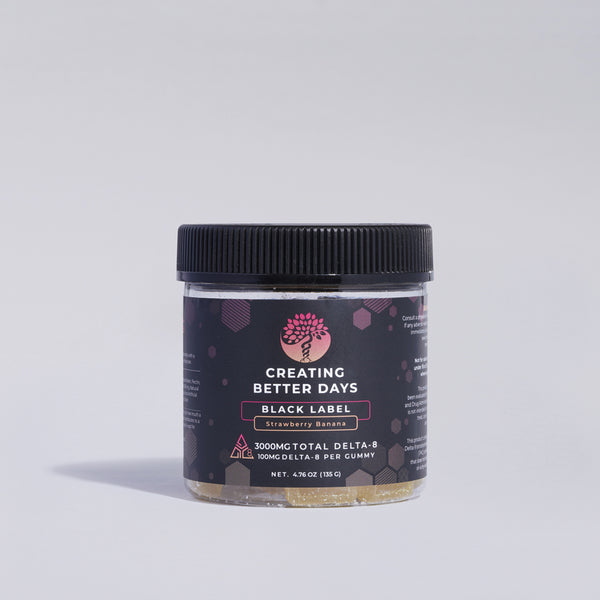
THCA vs Delta 9: What’s the Difference?
When it comes to the hundreds of cannabinoids out there, a few pairings spark curiosity, quite like THCA vs Delta 9. The cannabis discussion highlights these two compounds because they exhibit distinct properties and fulfill separate roles, although they share close similarities. Appreciating the full range of cannabis benefits requires both experienced users and new explorers to understand these cannabinoids. The overwhelming buzz around them requires us to discern factual information from the noise to understand their unique paths. You will find all the necessary information about THCA and Delta 9 THC in this guide.
Table of contents
Key Takeaways
-
THCA is a non-psychoactive precursor that becomes Delta-9 THC when exposed to heat.
-
Temperature, time, and method of use all influence the potency of THCA’s conversion to Delta-9 THC.
-
THCA doesn't produce the “high” of THC but has its own potential supportive properties. THCA becomes Delta 9 THC when exposed to heat.
-
Understanding the conversion process is crucial for choosing the right THCA or Delta-9 product for your preferences.
Key Differences Between THCA and Delta 9
The combined effects of cannabis result from the different cannabinoids acting as individual musical components in a harmonious symphony. What distinguishes THCA and Delta 9 THC from each other?
At a glance:
THCA (Tetrahydrocannabinolic Acid): THCA stands for Tetrahydrocannabinolic Acid which exists as the unprocessed precursor molecule in fresh cannabis plants. As a non-psychoactive compound, it functions as the "caterpillar" its not at its full evolutionary form. THCA stays inactive until heat or other external methods activate it which turns the “caterpillar” into a “butterfly.”
Delta 9 THC (Delta-9-Tetrahydrocannabinol): The decarboxylated, psychoactive rockstar. This compound delivers the well-known “high” effect for which cannabis is famous while creating opportunities for more intense experiences. The presence of Delta 9 THC turns regular moments into unforgettable experiences.
They both originate from the same chemical family but fulfill distinct functions that create exclusive experiences for consumers. Understanding their differences allows you to select the appropriate product based on whether you need something soothing or energizing.
Understanding Cannabinoids: An Introduction
Cannabinoids are nature’s way of crafting complexity. Cannabis plants contain compounds that engage with our body's endocannabinoid system to produce various potential effects. The distinct function of every cannabinoid results in the cannabis plant's broad applicability and attractiveness. Envision cannabinoids as novel characters whose everyone possesses a unique backstory and distinct role that collectively influences the story's progression. Learning about each cannabinoid's function allows you to understand the entire narrative cannabis presents.
How Cannabinoids Play Its Part In Cannabis
Cannabis isn’t just one-dimensional. The cannabis plant stands as a masterpiece created through scientific and artistic blending of hundreds of cannabinoids and terpenes to achieve unmatched versatility and iconic status. These compounds operate together in synergy to increase their combined effects, which scientists refer to as the entourage effect. While THCA and Delta 9 THC receive the most attention, people focus on them, yet it is their interaction with other compounds that results in the entourage effect, creating a full-spectrum experience where the sum exceeds its parts. The interaction between cannabinoids and terpenes renders cannabis a plant that adjusts dynamically to different user preferences.
Exploring THCA: The Non-Psychoactive Precursor
THCA represents a cannabis cannabinoid when it remains completely natural and unprocessed. Fresh flowers contain this cannabinoid, which remains inactive until heated, unlike its psychoactive analog, which creates a stronger sensation. THCA stays non-psychoactive when heat is absent because it delivers a sensation similar to a light breeze rather than an intense storm. THCA serves as a suitable choice for users who prefer a milder cannabis experience.
The Chemical Structure of THCA
THCA functions as the seed that develops into THC and stands as the non-psychoactive building block that defines cannabis. THCA (tetrahydrocannabinolic acid), in its natural state, lacks the psychoactive "kick" people expect from cannabis. THCA becomes psychoactive THC through decarboxylation, which can occur via heat exposure or natural aging.
The natural state of THCA exists in cannabis after the plant has been harvested and dried. When the plant undergoes heating via methods like smoking or making edibles, the THCA molecule loses its carboxyl group, during which it changes into THC. The conversion process from THCA to THC explains the different effects seen across various cannabis preparations. Decarboxylation persists throughout the natural drying and aging process of cannabis, which results in older cannabis possessing more THC than it had at harvest time.
THCA maintains its own set of appealing characteristics despite not being psychoactive. THCA does not cause psychoactive effects like THC does, yet researchers believe it has potential supportive properties.
Delta-9 THC: The Psychoactive Compound
Delta 9 THC represents cannabis's traditional reputation. Its psychoactive properties make cannabis an active substance that lifts your mood. It’s like turning the volume up at a party—a catalyst for good vibes and memorable moments. Whether you’re relaxing with friends or exploring your creative side, Delta 9 sets the tone for a more energized experience.
Recreational Use of Delta 9 THC
Cannabis fans hold Delta 9 THC in high regard because it stands out as their favorite compound. The unique energy of Delta 9 THC is present regardless of whether you enjoy it in a friendly atmosphere or savor it alone on a peaceful evening. Because of its adaptable nature, people select it for multiple activities such as social events and private relaxation time. Delta 9 THC is highly accessible through Delta 9 Gummies and numerous other products, making it the preferred choice for people who want to enhance their experience. The widespread appeal of this product shows how well it adjusts to multiple lifestyles and personal preferences.
Decarboxylation: The Process of Converting THCA to Delta 9 THC
The transformation of THCA into Delta 9 THC is all about heat and chemistry. Known as decarboxylation, this process removes the carboxyl group, activating the psychoactive potential of THCA. Whether you’re baking brownies or vaping fresh flowers, decarboxylation is the bridge between raw cannabis and its full potential. This process is what turns cannabis from a passive ingredient into an active powerhouse.
Factors Influencing THCA-to-Delta 9 Conversion
The THCA to Delta-9 THC conversion process cannot be generalized because it depends on multiple varying factors. Three main factors, which include temperature, time, and consumption method, together determine the strength and effects of the final product. Think of it like cooking: Consider cooking techniques as an example because the duration and temperature you use during cooking transform the final dish. During THCA decarboxylation, the exact temperature used determines both its strength and chemical composition. When higher temperatures are applied during the decarboxylation process, they produce stronger Delta-9 THC results, meaning that under optimal conditions, THCA might surpass Delta-9 THC in strength.
The transformation process depends heavily on the amount of time that passes. As THCA remains heated for longer durations, it converts more completely into Delta-9 THC, which boosts its strength. Reduced heating time helps maintain THCA's distinct properties. The heating method and duration determine the final product when comparing THCA to Delta 9 THC because time and temperature balance impact the chemical outcome.
Another critical element that determines how these compounds affect the body is the way they are used. The method you choose to use cannabis through smoking, vaping, or edibles affects its potency and how long its potential effects will last. Those who want to understand how THCA compares to Delta-9 THC need to consider this information when they choose their preferred method of use. The method by which you use THCA or Delta-9 determines the speed of absorption and duration of their potential effects.
Understanding these elements reveals why THCA cannot be directly compared to D9 THC. Temperature, along with consumption method and time exposure, controls the conversion of THCA to Delta-9 THC, which then determines the resulting strength and user experience of the product. The relative strength between THCA and Delta-9 THC comes down to these specific details.
THCA vs Delta 9: Legal Status and Regulation
Here’s where things get interesting. THCA and Delta 9 THC have different legal statuses in different jurisdictions. THCA remains largely unnoticed when in its natural state, unlike Delta 9, which faces strict regulation because of its psychoactive effects. Ensure that you consistently review local regulations to maintain compliance and stay informed. Legal frameworks change from place to place, so keeping up with current regulations helps you avoid legal trouble.
Cultivation of Cannabis: Influencing THCA and Delta 9 Levels
The levels of THCA and Delta 9 THC in cannabis plants are greatly influenced by growers. The final cannabinoid profile of cannabis plants depends on strain genetics as well as cultivation methods and harvest timing. Cannabis plants will produce different amounts of THCA and Delta 9 THC depending on their strain, which gives consumers multiple product choices. Creating quality cannabis depends on detailed attention, as required for producing fine wine.
Extraction and Isolation: Making Pure Forms
Creating products like THCA Gummies or Delta 9 Products involves sophisticated extraction methods. By isolating these cannabinoids, brands can create targeted experiences. These processes ensure that each product delivers consistent potency and quality. Whether you’re into edibles or tinctures, the extraction process ensures consistency and quality in every dose.
Consumer Perspectives: Experiences and Preferences
When it comes to THCA vs Delta 9 THC comparison, preferences vary. Some love the clarity and subtlety of THCA, while others lean into the bold energy of Delta 9. This diversity allows for tailored experiences depending on individual needs and moods. No matter your choice, both cannabinoids offer something for everyone. Exploring these options can be a rewarding journey for any cannabis enthusiast.
Delta 9 vs THCA in Cannabis
Comparing THCA and Delta 9 THC is like comparing coffee to tea—different vibes for different occasions. Delta 9 brings an undeniable spark, while THCA offers a more subdued, grounded experience. Each cannabinoid has its own unique charm, catering to a variety of preferences and lifestyles. Both have their place, depending on what you’re looking for, making cannabis a versatile option for consumers.
Final Thoughts: Where to Buy THCA and Delta 9 Products
Find the finest THCA Products and Delta 9 Gummies at Creating Better Days. We maintain the highest quality standards which are supported by transparent COAs and thorough testing procedures. We deliver trusted products by enforcing strict standards across all gummies, tinctures and flowers. Shopping through us allows customers to select products marked by reliable quality and expert craftsmanship.
Do you have additional questions about THCA and Delta 9 Products? Read these articles related to THCA and Delta 9 for more information. To find out more information, please read through our blog section or call us at (1800) 215-0223 with any questions you need clarification on. The expert customer support team at Creating Better Days stands ready to assist you.




